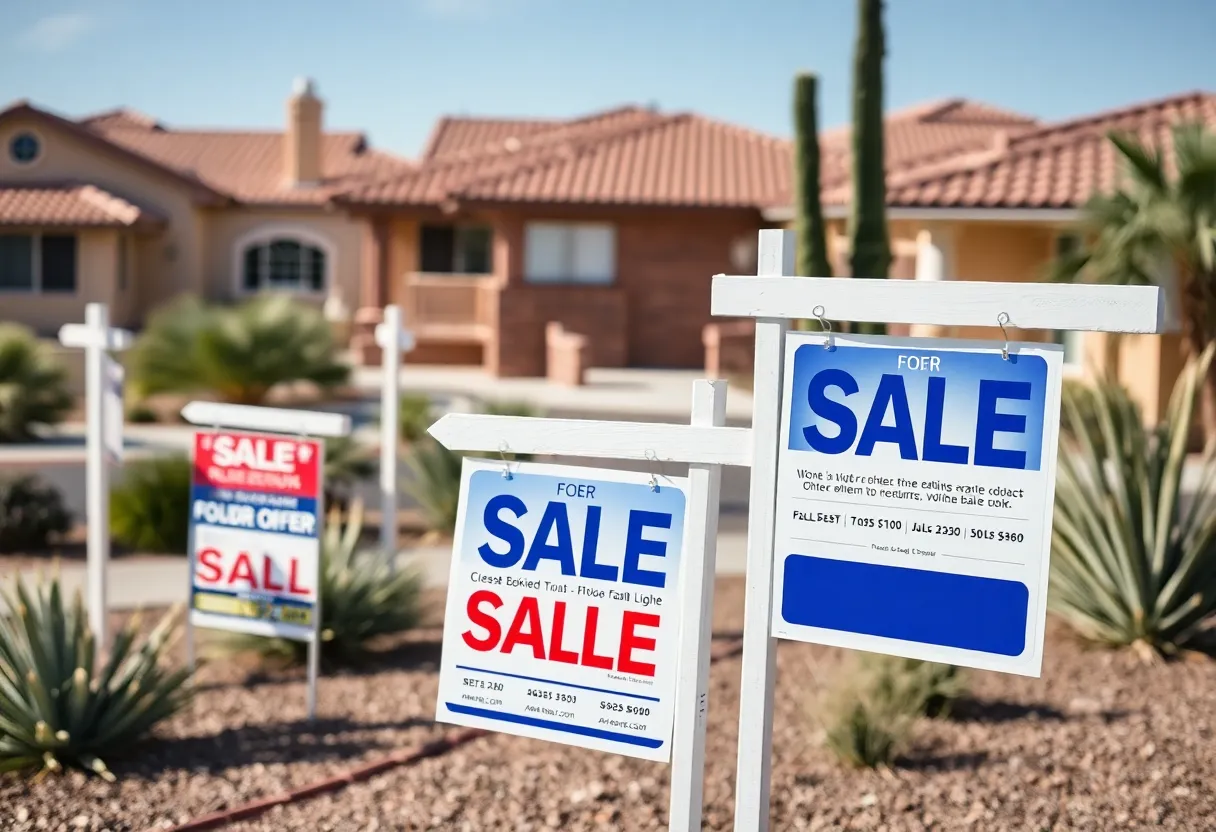News Summary
In April, Arizona topped the nation with a 28% reduction rate in home prices, exceeding the national average of 18%. Economic uncertainty is prompting sellers to adjust pricing strategies significantly. Homes like one in central Phoenix and another in Gilbert have seen considerable price drops. The Phoenix market is also seeing increased inventory alongside a decline in pending sales, emphasizing the need for sellers to offer competitive prices to attract buyers.
Arizona has emerged as the leader in home price reductions in the United States, with 28% of home listings experiencing cuts in April, a significant contrast to the national average of 18%. This trend highlights a growing challenge for sellers as economic uncertainty continues to affect buyer confidence and market dynamics.
According to data, many home sellers in Arizona are adjusting their expectations, realizing that competitive pricing is crucial in today’s market to attract buyers. A noted example includes a property in central Phoenix, which is undergoing repairs, including a new roof, and is set to close at a price of just under $700,000. This marks a reduction of $50,000 from its original listing price. Similarly, a four-bedroom, two-and-a-half-bath home in Gilbert has witnessed a notable price drop of approximately $70,000, despite being priced competitively at $50,000 below local comparables.
Agents in the region are emphasizing the importance of realistic pricing, noting that properties with inflated prices may experience fewer showings and offers. Acknowledging this shift, many sellers are now making concessions to encourage sales, undertaking repairs, and offering rate buy-downs to make their listings more appealing to potential buyers.
Over the past year, home values in the metro Phoenix area have seen a decline of 2.8%, making it one of the largest decreases in home prices across the country. Contributing to the changes in the market, the inventory of homes available for sale in Phoenix has surged by nearly 38% year-over-year, almost double the national rate. As inventory rises and pending sales decline by nearly 5% compared to the previous year, potential buyers are faced with increased options, marking the most extensive selection since 2019.
The luxury market, in particular, has experienced a significant slowdown, which has raised concerns about the overall health of the market. Despite the rising number of homes for sale and decreased pending sales, experts believe the current conditions symbolize a more balanced environment between buyers and sellers than what has been seen in recent years. Tina Tamboer from the Cromford Report noted that while the inventory is increasing, it does not indicate a crisis, as the market conditions are starting to stabilize.
Real estate analysis indicates that the Phoenix housing market remains volatile, with predictions of a potential crash on the horizon, as prices have decreased by 6.9% since reaching their peak in June 2022. As new listings in the Phoenix area have risen by 20% year-over-year, this has further prompted sellers to make concessions to secure sales.
Despite these price corrections, it is essential to recognize that many housing markets, including Phoenix, still show signs of being overvalued, estimated at around 18% above historical averages. This overvaluation suggests a delicate balance in the market as it adjusts to the realities of current economic conditions.
For homebuyers in Arizona, patience may be a crucial strategy moving forward, as continuing price declines present new opportunities for purchasing homes in a more favorable environment. As the real estate market evolves, it is becoming increasingly important for all participants to stay informed and responsive to changes in trends and consumer sentiment.
Deeper Dive: News & Info About This Topic
- AZ Central
- Wikipedia: Phoenix, Arizona
- Realtor.com
- Google Search: Phoenix housing market
- KTAR News
- Google Scholar: Phoenix real estate
- Newsweek
- Encyclopedia Britannica: Arizona
- Fox 10 Phoenix
- Google News: Arizona real estate market

Author: STAFF HERE PHOENIX WRITER
The PHOENIX STAFF WRITER represents the experienced team at HEREPhoenix.com, your go-to source for actionable local news and information in Phoenix, Maricopa County, and beyond. Specializing in "news you can use," we cover essential topics like product reviews for personal and business needs, local business directories, politics, real estate trends, neighborhood insights, and state news affecting the area—with deep expertise drawn from years of dedicated reporting and strong community input, including local press releases and business updates. We deliver top reporting on high-value events such as the Waste Management Phoenix Open, Cactus League Spring Training, and Arizona State Fair. Our coverage extends to key organizations like the Greater Phoenix Chamber of Commerce and Visit Phoenix, plus leading businesses in technology and healthcare that power the local economy such as Intel and Banner Health. As part of the broader HERE network, including HERETucson.com, we provide comprehensive, credible insights into Arizona's dynamic landscape.





